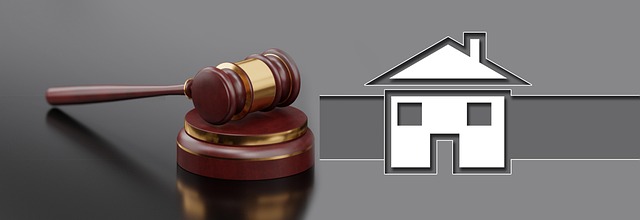Class action lawsuits empower individuals harmed by a common entity, offering collective impact and compensation without indictment. To file, plaintiffs' attorneys gather evidence, build a strong case, and file a complaint. The process begins with identifying a common issue, consulting a specialized attorney, building a compelling case, filing with the court, engaging in discovery, and preparing for trials or negotiations. Key components include robust evidence like medical records and expert testimonies, crucial for navigating complexities like white-collar crimes. Effective strategies maximize compensation through strategic legal navigation, including comprehensive documentation and deep law understanding. Choose a healthcare law firm with proven track records in prosecution and defense of healthcare matters, experienced in complex cases like pharmaceuticals or hospitals.
In today’s complex healthcare landscape, understanding your legal rights is paramount. This guide delves into the world of healthcare law firms and class action lawsuits, empowering patients with knowledge. Learn when and why these suits are initiated, and discover how to choose a reputable firm for your case. We’ll walk you through the legal process, emphasizing the importance of evidence and expert testimonies in building a strong claim. Finally, explore strategies to maximize compensation, including potential outcomes and settlements, providing valuable insights on navigating a class action lawsuit.
- Understanding Class Action Lawsuits: When and Why They're Filed
- Choosing the Right Healthcare Law Firm for Your Case
- The Legal Process: How to File a Class Action Lawsuit Claim
- Building a Strong Case: Evidence and Expert Testimonies
- Maximizing Compensation: Potential Outcomes and Settlements
Understanding Class Action Lawsuits: When and Why They're Filed

Class action lawsuits are a powerful tool for holding large entities accountable and protecting the rights of many individuals at once. These legal actions involve a group, or class, of people who have suffered similar injuries or harm due to a common defendant. Unlike individual lawsuits, which may only represent one person’s case, class actions aggregate claims from numerous plaintiffs, amplifying their collective impact.
When filing a class action lawsuit claim, it’s crucial to understand the process and timing. These cases are typically initiated when a significant number of corporate and individual clients have experienced similar adverse effects from a product, service, or policy. The plaintiffs’ attorneys will gather evidence, build a strong case, and file a complaint on behalf of the class. The goal is to avoid indictment for the defendant while seeking compensation and restitution for all affected parties. This collective approach can also foster accountability within philanthropic and political communities, ensuring that wrongdoers are held responsible for their actions on a larger scale.
Choosing the Right Healthcare Law Firm for Your Case

When considering which healthcare law firm to engage for your case, it’s crucial to select a practice with proven expertise in navigating complex legal landscapes specific to the industry. Look for firms that have a strong track record of both successful prosecution and defense of healthcare-related cases, demonstrating their versatility and adaptability. Experience in handling class action lawsuits is particularly valuable, especially when pursuing or defending against significant claims involving pharmaceutical companies, medical devices, or hospital systems.
Expertise isn’t the only factor to weigh; consider firms with a diverse client base encompassing both corporate and individual clients. This indicates a capability to tailor strategies to different needs while providing a comprehensive understanding of the healthcare legal landscape across the country. A reputable firm should be equipped to handle every stage of your case, from initial consultation and strategy formulation to trial or settlement negotiations, ensuring you have strong representation throughout.
The Legal Process: How to File a Class Action Lawsuit Claim

Filing a class action lawsuit claim involves a structured legal process designed to address wrongs that impact large groups of individuals. The first step is to identify a common issue or injury suffered by a substantial number of people, often facilitated by an attorney specializing in class action litigation. This lawyer will assemble evidence and build a compelling case, demonstrating the merit and potential impact of the suit. Once prepared, the claim is filed with the appropriate court, initiating the legal process.
The subsequent stages involve extensive discovery, where both parties exchange information crucial for building their cases. This phase is critical in developing strategies and preparing for potential trials or negotiations. Ultimately, if the plaintiffs’ claims are valid, a judge may certify the case as a class action, allowing for collective redress. A successful outcome can lead to winning challenging defense verdicts, ensuring justice and compensation for the affected group.
Building a Strong Case: Evidence and Expert Testimonies

Building a strong case requires robust evidence and expert testimonies to support your arguments. When navigating how to file a class action lawsuit claim, understanding the importance of these elements becomes paramount. Evidence can take many forms, from medical records and insurance policies to financial statements and digital forensics reports. These documents provide concrete proof of harm, breaches of duty, or violations of law, strengthening your case’s credibility.
Expert testimonies add an extra layer of validity by drawing on the specialized knowledge and experience of professionals in relevant fields. Whether it’s a medical expert opining on diagnostic errors or an economist analyzing financial losses, these testimonies can significantly impact the outcome of your case. In the context of navigating legal complexities like white-collar and economic crimes, or even general criminal defense issues within the philanthropic and political communities, having reliable evidence and experts backing your claims makes all the difference in building a compelling case.
Maximizing Compensation: Potential Outcomes and Settlements

When navigating healthcare law, maximizing compensation is a key goal for those considering a class action lawsuit claim. These complex legal battles often involve significant financial implications and can lead to substantial settlements or winning challenging defense verdicts. Understanding the potential outcomes is crucial throughout all stages of the investigative and enforcement process.
Effective strategies to maximize compensation include thorough documentation, expert testimony, and a comprehensive understanding of relevant laws and regulations, especially when addressing white-collar and economic crimes. By presenting compelling evidence and adhering to legal procedures, plaintiffs can enhance their chances of achieving favorable results, whether through out-of-court settlements or successful jury trials.
When pursuing justice in healthcare disputes, understanding class action lawsuits is pivotal. This legal strategy empowers individuals to collectively stand against powerful entities, aiming for significant compensation and systemic change. By engaging a specialized healthcare law firm, you gain access to experts who can navigate the complex process of filing a class action lawsuit. Through meticulous case building, leveraging evidence, and expert testimonies, these firms maximize your chances of success. Following the outlined legal process, including how to file a class action lawsuit claim, ensures your rights are protected, paving the way for potential settlements that can bring about positive transformations in healthcare practices.






